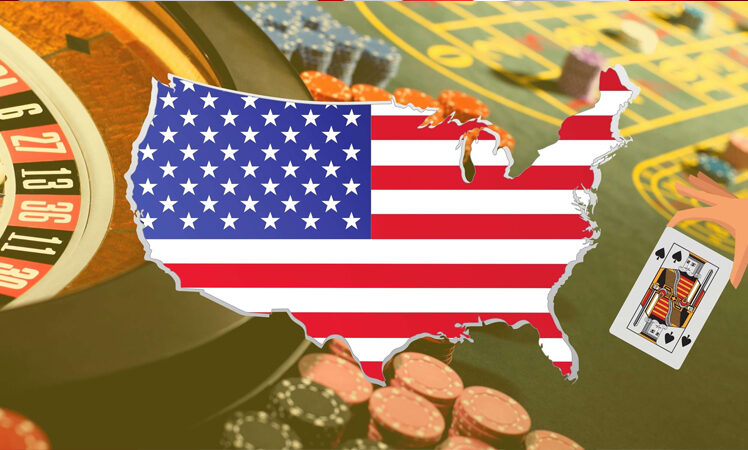- Casino News
- USA News
Prediction Markets Fuel iGaming Growth During 2024 Election


Market Surge in Wake of Election
As Americans cast their votes on November 5th, 2024, in what many expected to be a closely contested election, the clear winner emerged: Donald Trump secured his second presidential term after four years away from the White House. However, beyond the political outcomes, the true winners of the election may have been the prediction markets, which offered U.S. citizens the chance to place legal wagers on the election outcome for the first time in history.
Unlike traditional betting markets, which have long operated in states where sports wagering is legalized, prediction markets allow users to wager on the probability of specific events, such as political outcomes. These markets function as a type of financial derivatives exchange, where participants trade contracts based on future events. As the 2024 election cycle drew closer, these platforms became the focus of legal and regulatory scrutiny, yet they still flourished, attracting hundreds of millions of dollars in bets—and predictions that turned out to be incredibly accurate.
| Platform | Type | Total Staked in 2024 Election | Key Features | Legal Status |
|---|---|---|---|---|
| Kalshi | U.S.-regulated | $700 million+ | Legal prediction market for political events | Fully legal in U.S. |
| Polymarket | Crypto-based | $4 billion+ | Cryptocurrency-driven, grey-market platform | Banned for U.S. users |
| PredictIt | New Zealand-based | $1 billion+ | U.S.-focused, grey-market prediction market | Grey area (U.S.) |
One of the most notable players in this emerging market was Kalshi, a federally approved prediction exchange that offered “yes/no” event contracts on the 2024 U.S. election. Kalshi’s success was punctuated by a critical win in federal appeals court, which granted the platform approval to list political event contracts just weeks before the election. Despite the legal uncertainties surrounding prediction markets, Kalshi aggressively marketed its platform as a legitimate way for U.S. citizens to wager on political outcomes, using terms like “bet” in its advertising—a point of contention given the platform's approval hinged on non-gaming status.
By November 6th, Kalshi had processed over $700 million in election-related contracts, with nearly $430 million staked on the presidential race alone. In mid-October, the platform’s total volume was a mere $15 million, but by November 3rd, just two days before the election, it had ballooned to $250 million—a testament to the rapid growth and popularity of political prediction markets as Americans embraced the opportunity to legally stake money on the election.
Kalshi, like all derivatives exchanges, earns money by matching opposite contracts and collecting trading commissions. The platform’s design allowed users to place bets on specific outcomes, such as whether Trump or his opponent would win, and at what margin. While Kalshi is currently the only fully legal, U.S.-approved prediction market, it wasn’t the only platform reaping the benefits of the election cycle.
Grey-Market Platforms Flourish Amid Legal Ambiguities
Despite Kalshi’s legal standing, other platforms operated in a grey area, technically prohibited under U.S. law but still accessible to users through various workarounds. Polymarket, a crypto-based prediction exchange, took in over $4 billion in election contracts, despite being technically banned for U.S. users. PredictIt, another grey-market platform based in New Zealand, also saw significant activity, with estimates suggesting it processed more than $1 billion in election contracts.
Though these platforms are technically outside the bounds of U.S. regulation, they gained widespread attention through media coverage and continued to operate under the radar. Polymarket and PredictIt were referenced frequently by major media outlets and even analysts, despite the legal risks they face. The proliferation of these grey-market platforms signals a larger trend toward an appetite for legally dubious, but popular, markets where users can stake real money on political outcomes.
The Accuracy of Prediction Markets: A Case for Legalization?
One of the central arguments in favor of prediction markets, and particularly Kalshi’s bid for legitimacy, is their potential to combat misinformation in the election process. Kalshi executives have repeatedly stated that these markets can provide more accurate information than traditional polls, which have historically been prone to inaccuracies and bias. As it turns out, prediction markets lived up to their promise.
Trump’s victory was a heavy favorite across all major prediction markets for weeks leading up to Election Day. On Kalshi, Trump’s chances soared to 64% by late October, while traditional polls, including those by FiveThirtyEight, had Democratic candidate Kamala Harris as the narrow favorite. The accuracy of these platforms—especially in contrast to polling data that often fluctuated throughout the campaign—could offer a strong argument for the further legitimization of prediction markets in the U.S. These markets, by offering hard financial stakes and transparency, may provide a more reliable snapshot of public sentiment than the often-volatile polling data.
Prediction markets have proven to be a powerful tool for providing more accurate insights than traditional polls, and their success in the 2024 election underscores the growing demand for legal, data-driven betting platforms.
The Future of iGaming
The success of prediction markets in the 2024 election is a clear sign of how far the U.S. has come in terms of accepting new forms of betting, but also how the lines between traditional gambling, financial markets, and entertainment are continuing to blur. As online sports betting and iGaming have already seen exponential growth in states that have legalized them, prediction markets may soon follow suit.
While platforms like Kalshi are still relatively niche, their success raises a broader question about the future of political betting in the U.S. Could these prediction markets be considered a form of legal betting under the broader iGaming umbrella? The answer remains unclear, but as states continue to expand their iGaming and sports betting offerings, it seems inevitable that these markets will be scrutinized more closely—and possibly regulated—going forward.
The success of these markets also provides valuable data for the iGaming sector as a whole. As states like New Jersey, Michigan, and Pennsylvania continue to grow their online gambling markets, political prediction platforms—like Kalshi and others—could prove to be a key component of the next phase of U.S. iGaming expansion. For now, prediction markets have become a powerful new frontier in the U.S. gambling landscape, capitalizing on the intersection of politics, finance, and the growing demand for new types of legal wagers.
Whether prediction markets will continue to thrive or face more legal challenges remains to be seen, but their impact on the 2024 U.S. election—and their accurate forecasting of the outcome—has made it clear that the market for political betting is here to stay.








